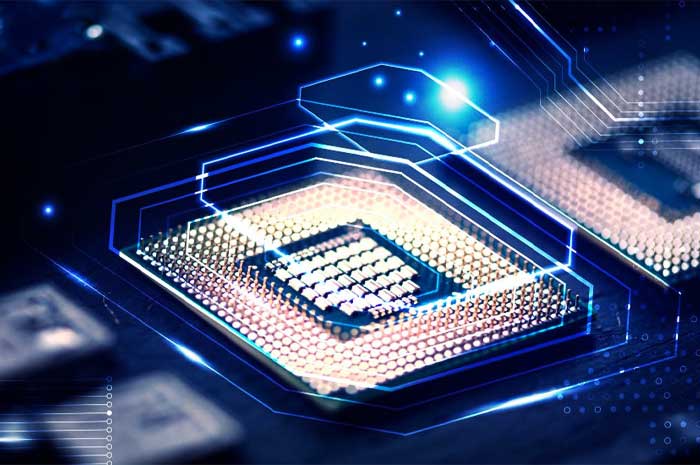YOGYAKARTA – There are many smartphones on the market, and almost all of them have different chipsets. The performance of any chipset is very important for any smartphone, it influences the user experience and has a long-term positive impact.
First, let’s understand the meaning of Chipset. A chipset is a collection of integrated circuits that supports and coordinates the functions of various components in a system, such as processors, memory, graphics cards, storage, and I/O (Input/Output) devices.
Check out our best processors for phones ranking list if you want to make sure you choose the right smartphone with the right SoC in order of best chipset.
Every year, new mobile processors make their debut in the smartphone sector. Each is different, and each surpasses the previous one. The 2021 chipset ranking list consists of more than 170 CPUs with their benchmarking. However, there is a fine line between the capabilities of each processor.
One can improve your gaming performance, while another can give you a high-quality camera experience, and another can give you a great overall experience. In this post, we have selected the best mobile processors and compiled a mobile CPU ranking list. This will help you quickly determine the best smartphone CPU for your future handset.
Best Chipset Order
So, if you’re looking for a list of the best mobile CPUs, we’ve put together a list of 159 mobile processors, along with their rankings and benchmark scores from several benchmarking websites.
This list will help you identify the top smartphone processors and help you make a smart purchasing decision. Here is the order of the top 50:
- A15 Bionic – Apple
- Dimensity 9000 – MediaTek
- Snapdragon 8 Gen 1 – Qualcomm
- A14 Bionic – Apple
- Exynos 2200 – Samsung
- Snapdragon 888 Plus – Qualcomm
- Snapdragon 888 – Qualcomm
- Google Tensors – Google
- Kirin 9000 – HiSilicon
- Dimensity 8100 – MediaTek
- Exynos 2100 – Samsung
- A13 Bionic – Apple
- Kirin 9000E – HiSilicon
- Snapdragon 870 – Qualcomm
- Exynos 1080 – Samsung
- Snapdragon 865 Plus – Qualcomm
- Dimensity 1200 – MediaTek
- Dimensity 1100 – MediaTek
- Snapdragon 865 – Qualcomm
- Dimensity 1000 Plus – MediaTek
- A12 Bionic – Apple
- Snapdragon 860 – Qualcomm
- Exynos 990 – Samsung
- Snapdragon 855 Plus – Qualcomm
- Snapdragon 778G Plus – Qualcomm
- Kirin 990 (5G) – HiSilicon
- Snapdragon 780G – Qualcomm
- Snapdragon 778G – Qualcomm
- Snapdragon 855 – Qualcomm
- Kirin 990 (4G) – HiSilicon
- Exynos 9825 – Samsung
- Exynos 9820 – Samsung
- Dimensity 1000 – MediaTek
- Dimensity 920 – MediaTek
- Dimensity 1000L – MediaTek
- Kirin 985 – HiSilicon
- Kirin 980 – HiSilicon
- Kirin 820 – HiSilicon
- Dimensity 820 – MediaTek
- Snapdragon 768G – Qualcomm
- Dimensity 900 – MediaTek
- Snapdragon 845 – Qualcomm
- Snapdragon 695 – Qualcomm
- A11 Bionic – Apple
- Exynos 9810 – Samsung
- Exynos 980 – Samsung
- Snapdragon 765G – Qualcomm
- Dimensity 800U – MediaTek
- Snapdragon 765 – Qualcomm
- Snapdragon 480 Plus – Qualcomm
What exactly is a processor or central processing unit (CPU)?
A processor, in technical terms, is an electrical circuit that manages a device’s instructions. Multiple logic gates, arithmetic logic units, combinational logic, main memory, and input/output (IO) are all included. Different processing threads, such as Artificial Intelligence Engines and Image Signal Processors, are included in today’s mobile processors.
This processor is designed to meet the needs of smartphone users. They are set up to handle computing, voice calls, image generation, camera calibration, and cellular networks. To put it bluntly, they are the intelligent mobile processors of the future, which is why today’s mobile processors are referred to as System-on-Chip (SoC). However, because this SoC is so advanced, extra testing is required to find important breakthroughs in CPU benchmarking.
What exactly is benchmarking ?
Benchmarking is a technique used at the industrial level to evaluate SoC performance using certain matrices. This matrix is nothing more than a score given to the SoC after successful testing. Gaming performance, battery savings, and general CPU performance are examples of tests that an SoC undergoes to determine its computing capabilities.
Apple’s A15 Bionic CPU is currently the largest processor for mobile devices in the 2022 chipset rankings. This is the same chip found in Apple’s new iPhone 13 and iPad series and in the 2021 chipset rankings.


